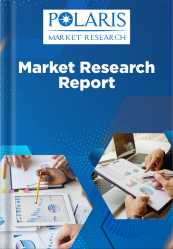The global agrigenomics market, valued at USD 3.47 billion in 2021, is expected to grow at a compound annual growth rate (CAGR) of 9.9% during the forecast period. Agrigenomics refers to the application of genomics in agriculture, which involves the use of advanced genetic testing and molecular biology techniques to improve crop and livestock productivity. It has become an essential tool for researchers, farmers, and agricultural businesses aiming to develop high-yielding, disease-resistant crops and livestock. The market's rapid expansion is fueled by the need for sustainable agricultural practices, increasing global food demand, and the growing integration of technology in farming practices.
Key Market Challenges:
Regulatory and Ethical Concerns:
One of the primary challenges facing the agrigenomics market is the regulatory and ethical concerns surrounding genetically modified organisms (GMOs). While GMOs offer numerous benefits, such as increased crop yields and disease resistance, they have been met with resistance in certain regions due to fears of their potential impact on biodiversity and human health. Stricter regulations in some countries may slow down the adoption of agrigenomic technologies, limiting their market potential.
High Costs of Technology and Research:
The cost of genomic research and technology can be prohibitively high, particularly for small-scale farmers in developing regions. The initial investment required for genome sequencing, molecular testing, and the adoption of advanced technologies such as CRISPR can be a barrier to entry for many stakeholders. Furthermore, the time required to develop genetically modified crops and livestock and obtain regulatory approval adds to the overall cost of agrigenomics projects.
Public Perception and Acceptance:
Despite the proven benefits of agrigenomics, public perception and acceptance of genetically modified products remain a significant hurdle. Misinformation and skepticism about the safety of GMOs can influence consumer behavior, leading to resistance against the consumption of genetically modified crops and livestock. This resistance is particularly evident in regions with strong anti-GMO sentiments, such as Europe. Overcoming public mistrust through transparent communication and education about the safety and benefits of agrigenomics is crucial to the long-term success of the market.
Intellectual Property and Patent Issues:
The complex nature of agrigenomics technologies has led to an increase in patent filings, with companies seeking to protect their innovations. However, this has also led to disputes over intellectual property rights, particularly in the case of genetically modified seeds and breeding technologies. These issues can create barriers to collaboration and innovation, as companies may be reluctant to share their technologies due to fears of intellectual property theft or infringement.
Browse Full Insights:
https://www.polarismarketresea....rch.com/industry-ana
